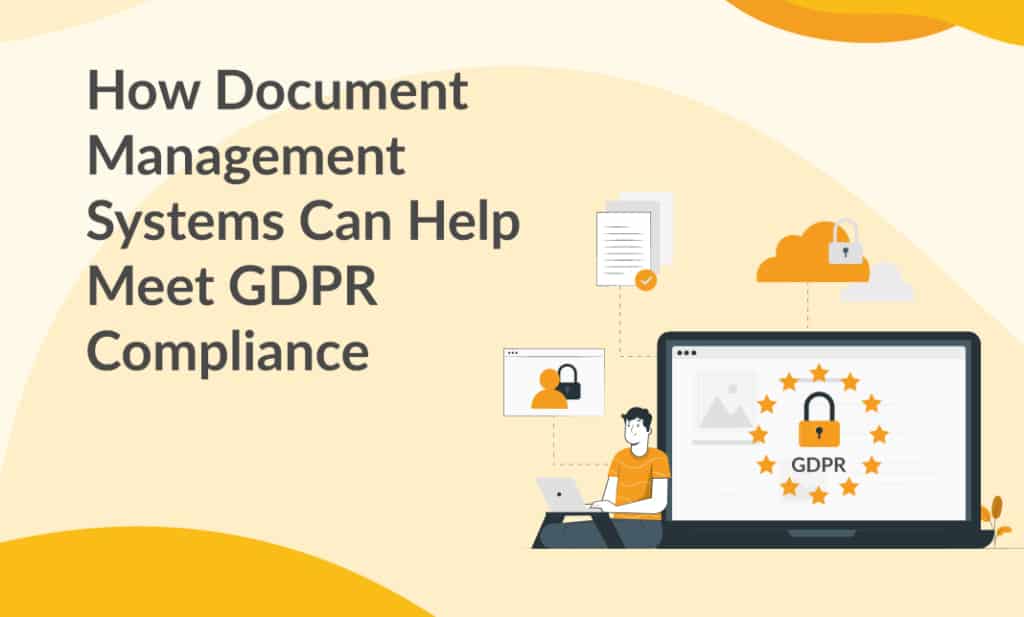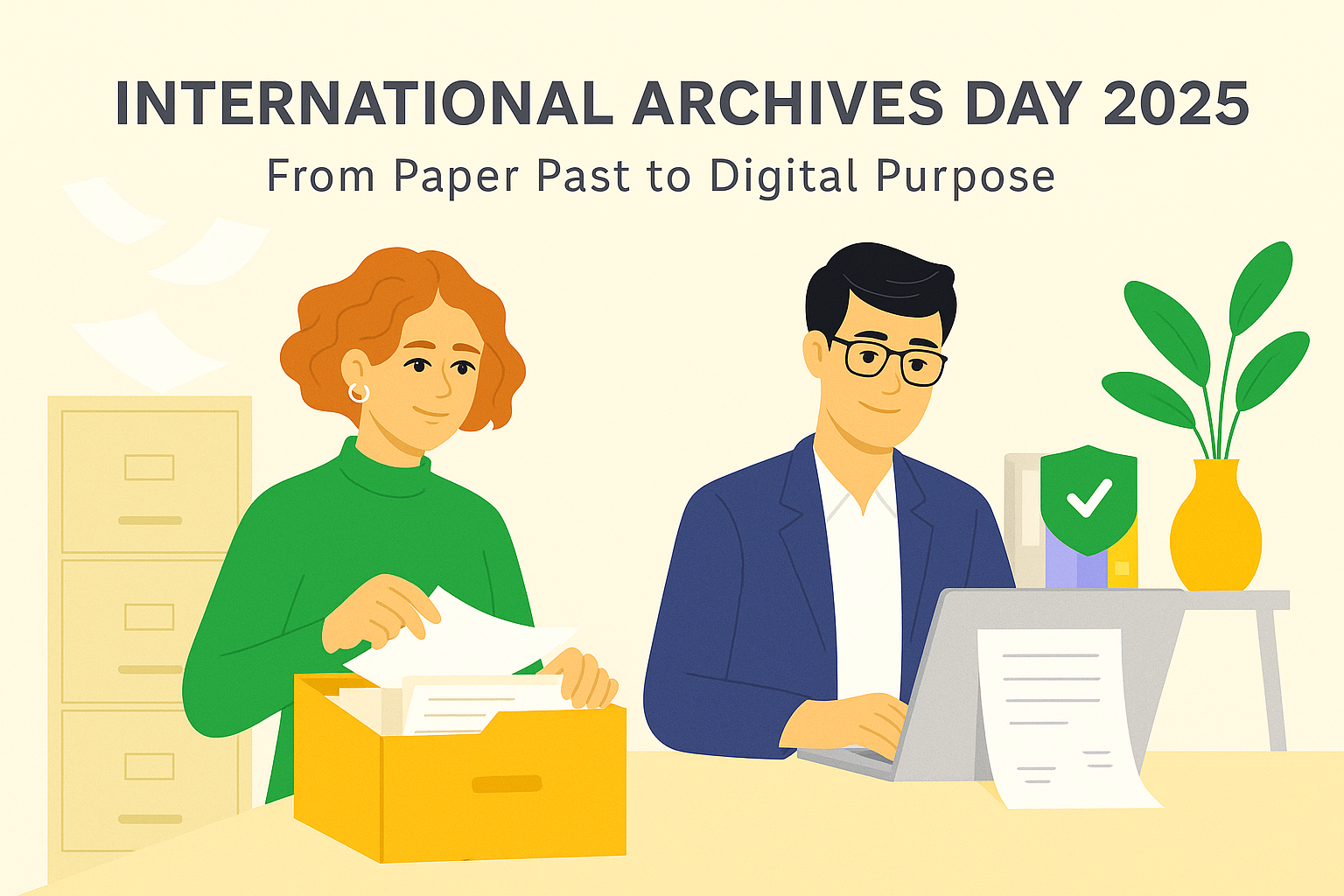Managing large numbers of documents has become a significant challenge for businesses. Recognizing, evaluating, and extracting data from a variety of critical documents assists businesses in making sound decisions.
Document management – the process of creating, scanning, storing, and regulating documents – has grown in importance as a result of the General Data Protection Regulations (GDPR), which took effect in 2018. GDPR compliance has become a critical consideration in the storage, handling, and processing of data. The majority of businesses rely on data processing services to manage massive amounts of data. To comply with GDPR, it is critical to examine how large numbers of documents and data are currently maintained within your organization, and most businesses rely on data processing services for this.
Understanding the GDPR and Its Consequences
The GDPR is a unified law that applies throughout the European Union (EU) and enforces data protection rules and regulations. The law implements standard data security concepts such as reducing personal data gathering, deleting personal data that is no longer needed, restricting access, and ensuring data security throughout the lifetime. There are no geographical, firm size, or business scope restrictions, thus any entity with an internet presence would be affected. The GDPR is intended to protect personal information such as names, phone numbers, addresses, account numbers, and other personal documents (like email and IP addresses). Business entities typically keep such data as customer information (in CRM systems) and staff information. (in HRM systems).
In comparison to the previous Data Protection Act, the greater accountability and harsh fines seek to shift the attention to preventive measures and audits of how and where data is stored and destroyed. In this case, the penalty for noncompliance is severe. Data protection authorities have the authority to levy fines of up to 20 million euros, or 4% of the prior fiscal year’s total annual worldwide turnover, whichever is greater.
The significant discrepancy in the specific approach to data gathering in the United States and the EU is an important issue in data security rules. In most cases, personal information is gathered automatically in the United States, with just an “opt-out” option available to users. GDPR, on the other hand, demands that in order to collect information from EU data subjects, an affirmative “opt-in” consent that clearly describes how the data will be used be sought. Policies on privacy must be consistent.
In order to process data in accordance with GDPR legislation, the following basic principles must be followed:
- Data must be acquired in a transparent manner.
- Data must not be kept for any longer than is absolutely necessary.
- Data must be acquired for a lawful and well-defined purpose.
- Data must be correct, up to date, and relevant to its intended use.
- Controllers must be able to demonstrate their efforts to comply.
- At all times, appropriate security standards must be followed.
GDR Compliance with DMS
With the rise in data breaches, businesses are more concerned about content security. It is critical for businesses to safeguard critical corporate information and customer information. It is critical to ensure that your data remains secure, regardless of whether it refers to corporate firm facts, intellectual capital, financial details, research, training, or information on top customers. Furthermore, it is difficult for businesses to determine how many paper documents exist. Duplication on photocopiers, removal of documents from your office, and insecure disposal of documents can all result in the existence of multiple copies of the same document, which is a GDPR violation.
A document management system (DMS) stores, retrieves, manages and tracks electronic documents as well as scanned images of paper documents throughout an organization. Paper-based information can be acquired and maintained in a far more safe and more effective manner via document management scanning. They maintain the audit trail and the document lifecycle. Using a DMS allows you to handle and organize documents throughout your whole organization, making your company GDPR-compliant.
DMS provides numerous essential benefits, including the ability to gather, manage, and regulate access to the growing number of records and other documents your firm handles (both digital and physical).
- Quick document retrieval
- Good disaster recovery
- Storage requirements are reduced.
- Improved workflow efficiency
- Centralized Security
- improved collaboration
Here are the essential parts of the GDPR laws and how a DMS may help with each one –
The right to be forgotten
Under the new laws, an individual has the right to request that personal data be deleted or removed if there is no compelling justification for its ongoing processing. Requests like these can be readily managed and completed in a timely way by using a DMS. Because all files are stored in a single area, finding the appropriate files is easier and more efficient. This offers you confidence that all files can be easily identified and deleted, ensuring GDPR compliance.
The right of access
GDPR requires that individuals have access to their personal data. The information must be supplied to the individual who made the request using “reasonable means” and within one month of receipt. Information may be accessed quickly and easily with DMS, and it can be given to those exercising their right of access within the timeframe specified. Furthermore, audit trails for documents, including access to discard bins in system-wide searches, allow for the retrieval of unintentionally destroyed documents, guaranteeing that this material is easily retrievable and may be passed on rapidly.
Encryption
Data encryption is a critical component of GDPR compliance. A ransom virus can readily access your organization’s data, such as employee records, bank information, and other sensitive information. With a DMS, however, all specified files are encrypted on the first input, and documents are stored as pictures. This ensures that all of your specific documents and data are safeguarded even in the event of an attack.
Privacy by design
GDPR mandates firms to address data privacy during the design, maintenance, and operating phases of information systems. This data privacy feature comprises teaching staff to handle documents consistently, according to standard procedures and regulations, and limiting document access to only authorized personnel. A DMS guarantees that all processes and protocols are followed consistently.
The right to data portability
It entitles individuals to quickly and securely move, copy, or transfer personal data from one IT environment to another. For example, if a consumer intends to migrate to a different company, their data should be made freely available to the new company within one month of the request. The usage of a document management solution will ensure that businesses meet this requirement within the time frame specified.
Breach notification guidelines
Under the new GDPR laws, enterprises must notify the Supervisory Authority (SA) of any personal data breaches within 72 hours of discovery. On the other hand, if there is a genuine threat to an individual’s rights and freedom (in certain circumstances), the individual must also be warned. A DMS can detect such breaches and instantly report them. With privacy as a key aspect of the new GDPR standards, you can ensure that data is not accidentally accessed and is always stored in a highly secure manner.
Role-based access control
GDPR criteria ensure that essential information is locked or secured not only from the outside world but also within the firm via access control. For example, if a company’s marketing manager needs access to a customer’s direct debit, or a temp needs to be able to email or print documents, he or she should have access to all specific information related to their job description. DM allows for the creation of rules that restrict information access.
Retention control
While GDPR laws do not specify particular time limits for retaining personal data, the law does require that personal data be retained only for as long as it is required for processing. Organizations must consequently build their retention policies on the nature of their business and industry. Data must be utilized exclusively for the reason for which it was received and should not be kept indefinitely. Financial documents, for example, must be kept for up to 7 years, but CVs should be deleted as soon as a post is filled – there is no need to keep someone’s personal information at this time. DMS may be efficiently designed across the organization to correctly store personal data and flag any documents or delete information or a portion of it that is no longer required or has reached the appropriate time frame for deletion.
Adopting a Proactive Approach to GDPR Compliance with Folderit
By implementing Folderit’s document management system, your organization can take a proactive approach to compliance. Folderit simplifies data management, ensuring that your organization adheres to GDPR principles and maintains the highest standards of data privacy. By leveraging Folderit’s robust features and functionalities, you can minimize the risk of non-compliance and protect your organization from potential financial and reputational consequences.





